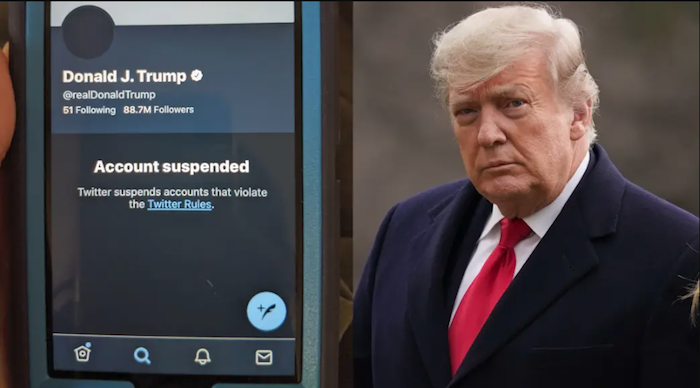On Friday, a court dismissed former President Donald Trump’s lawsuit seeking to overturn his Twitter ban.
However, San Francisco federal district court Judge James Donato left the door open for Trump and other plaintiffs to submit an amended complaint against Twitter, which is consistent with his written decision to dismiss the action in its entirety on Friday.
The social media giant had banned Trump on Jan. 8, 2021, citing the risk of inciting additional violence in the aftermath of the Capitol brawl by a crowd of Trump supporters two days earlier.
Last year, Trump, the American Conservative Union, and five people sued Twitter and its co-founder Jack Dorsey on behalf of themselves and a class of other Twitter users who had been kicked off the program.
Donato’s decision comes almost two weeks after Trump told CNBC that he would not return to Twitter even if his ban were lifted by Elon Musk, the Tesla CEO whose $44 billion deal to purchase Twitter was accepted by the business’
Prior to the ban, Trump was an active Twitter user, tweeting more than 30 times per day at the conclusion of his presidency. Trump had roughly 90 million Twitter followers at the time of the suspension.
His lawsuit claimed that Twitter violated the plaintiffs’ First Amendment free expression rights, claiming that the bans were imposed due to pressure from Democratic members of Congress.
However, Donato said in his 17-page opinion that Trump and the other plaintiffs “are not starting from a position of strength” with their First Amendment argument.
According to the judge, “Twitter is a private firm, and the First Amendment applies only to governmental abridgements of expression, not to claimed abridgements by private enterprises.”
Donato rejected the premise that Twitter’s ban on Trump and others was due to government activities, which would be the only way to support the allegation of a First Amendment violation.
“Overall, the revised complaint does not credibly claim that Twitter acted as a government agency in closing plaintiffs’ accounts,” Donato said.
In addition, the action urged the judge to determine that the federal Communications Decency Act was unconstitutional.
According to the CDA, internet service providers such as Twitter cannot be held liable for material uploaded by others.
Donato rejected the suit, concluding that the plaintiffs lacked legal standing to challenge the CDA. The judge stated that the only way they could have such standing was to demonstrate that Twitter “would not have de-platformed the plaintiff” or others if it had not been for the CDA’s legal protection when it comes to content.
“Overall, the revised complaint does not credibly claim that Twitter acted as a government agency in closing plaintiffs’ accounts,” Donato said.
In addition, the action urged the judge to determine that the federal Communications Decency Act was unconstitutional.
According to the CDA, internet service providers such as Twitter cannot be held liable for material uploaded by others.
Donato rejected the suit, concluding that the plaintiffs lacked legal standing to challenge the CDA. The judge stated that the only way they could have such standing was to demonstrate that Twitter “would not have de-platformed the plaintiff” or others if it had not been for the CDA’s legal protection when it comes to content.
According to the judge, just one stated plaintiff in the complaint, Dominick Latella, had an active Twitter account when Florida’s statute went into effect on July 1, 2021, and so is the only plaintiff who might potentially have a claim under the law.
“There is also significant uncertainty regarding the SSMCA’s enforcement,” Donato wrote.
“Florida government authorities were barred from implementing the SSMCA on June 30, 2021, the day before the statute was to take effect,” the court noted, citing a “well-reasoned ruling issued by the Northern District of Florida” that determined the bill violated the First Amendment.
